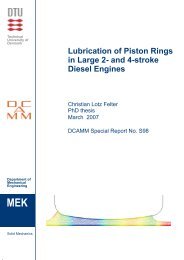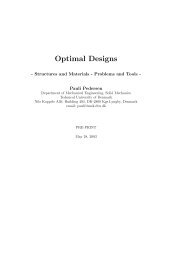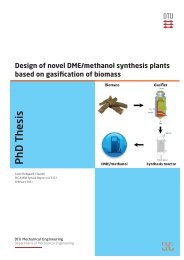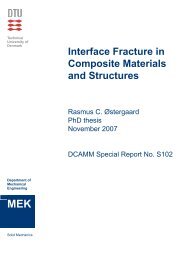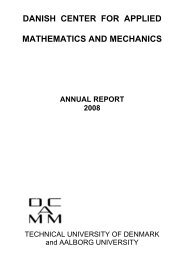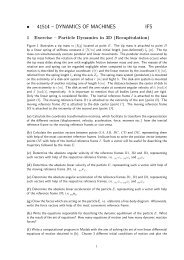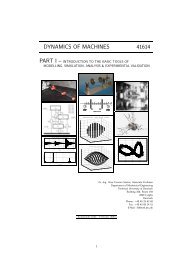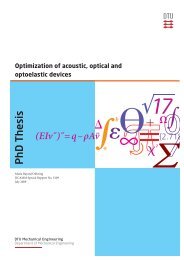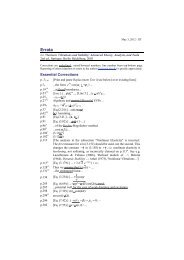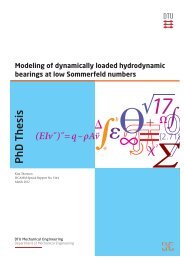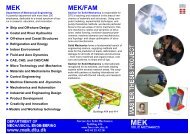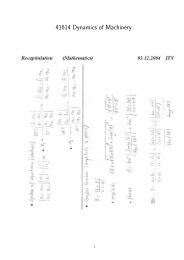Troels Dyhr Pedersen.indd - Solid Mechanics
Troels Dyhr Pedersen.indd - Solid Mechanics
Troels Dyhr Pedersen.indd - Solid Mechanics
Create successful ePaper yourself
Turn your PDF publications into a flip-book with our unique Google optimized e-Paper software.
- 21 - -<br />
7.3 Development in the use of dimethyl ether as a fuel<br />
As oil derived fuels are becoming increasingly harder to exploit and hence more<br />
expensive, alternative fuels are starting to become both economically and politically<br />
attractable. In a future society it is most likely that a variety of sources are used to<br />
produce a variety of fuels for engines. The sources will likely be prioritized such that<br />
those domestically available will be given a primary role in the supply chain.<br />
A prime example of a nation shifting its focus from oil towards its domestic resources is<br />
China, which is undoubtedly the leader within DME production. The wish to avoid<br />
dependence on fuel import has led the country to utilize its coal resources for fuel<br />
production. Coal is now utilized to produce large quantities methanol, ethanol and DME.<br />
As of 2009, the country has capacity to produce more than 7 million tons of DME per<br />
year, a capacity which is expected to be near 15 million tones per year in 2010 [13]. The<br />
current production is used mainly as a supplement to LPG which has similar properties.<br />
The situation in China is therefore that DME is now commonly available in large<br />
quantities. There are a small number of buses in Shanghai that has been converted to<br />
DME and are operating in the city.<br />
In Japan, a few small scale DME plants have been built so far, and a small fleet of trucks<br />
are currently being tested [14, 15 and 16]. The National Traffic Safety and Environmental<br />
Laboratories (NTSEL) have been responsible for converting the trucks and engines. The<br />
government has taken large steps to the protection of the air quality in Tokyo, by<br />
implementing strict regulations for all vehicles. As an example, all diesel trucks operating<br />
within the city limits are required to be fitted with particulate filters. It is therefore likely<br />
that Japan will increase their efforts towards implementing DME as a diesel substitute in<br />
the future. The question remains which resources will be used for the production of<br />
DME, given that Japan does not have coal or natural gas, and thus are forced to import<br />
the feedstock for the production.



